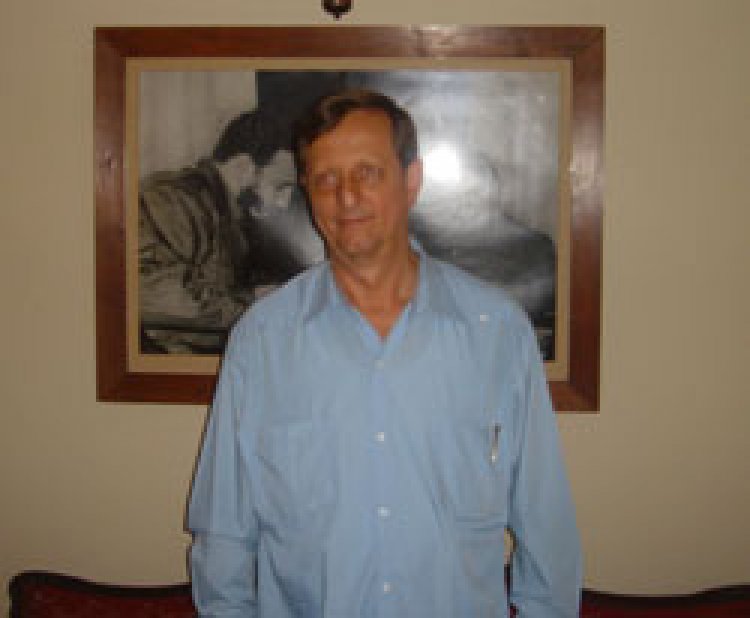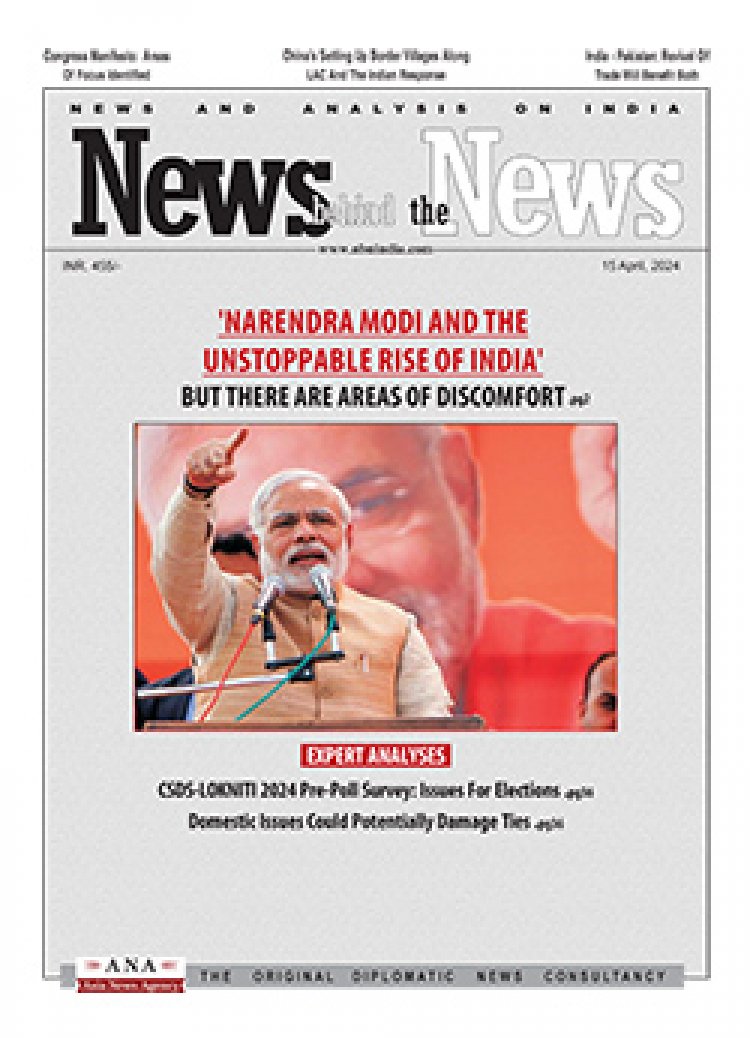H.E. Mr. Miguel Angel Ramirez Ramos

ANA: You Excellency, in the side-line of Bengal National Chamber of Commerce & Industry conference in February this year, you have mentioned that the bilateral trade between Cuba and India is likely to increase more than two-fold to US$ 100 million within the next three years from the current US$40 million. Indian Government is taking steps like extending credit cover for exports to Cuba through the Export Credit Guarantee Corporation and sanctioning credit worth US$100 million to Cuba through the EXIM bank of India. Your Excellency, what are the steps your Government is initiating to strengthen the prospect of bilateral trade?
Ambassador: When we mention that EXIM BANK is providing 100 million dollars it refers to the process that it is presently going on and where at least we expect to get that amount of credit, if not more. From the Cuban side we started with an important trade delegation last year and a significant number of entrepreneurs took part in several trade fairs organized by India. At the same time we encouraged the participation of an important Indian delegation to the Havana International Trade Fair. Only after one year that this offensive started we are already seeing the results of these efforts and the bilateral trade has almost reached 70 million dollars at the end of 2008, therefore reaching 100 million in 3 year’s time will probably be an underestimate. We have attached particular relevance to the biotechnology and pharmaceutical sectors, where we find important opportunities in the bilateral trade.
ANA: Cuba primarily exports vaccines, medicines, cigars and nickel to India. What are the other commodities from Cuba which should find their way into Indian market? And what are the sectors in which you would like to import Indian commodities to complement domestic production?
Ambassador: Indeed these are important exports from Cuba to India, particularly those connected to medicine and biotechnology. We may add rum as well. Already there is a factory in Chandigarh that is bottling the Cuban rum and therefore its price has come down and is selling quite well in the local market. India is in a position to cover a lot of our needs in the area of infrastructure equipment, transportation, tyres, active pharmaceutical ingredients and generics, electronic equipment’s, cotton yarn fabrics and made-ups, drugs, pharmaceuticals and fine chemicals, plastic and linoleum products, machinery, instruments, spices etc. There is a wide range of products that only need to have a necessary cover for their exports to Cuba, so that they receive the proper encouragement.
ANA: Cuba has recently hosted the four-day ministerial level meeting of the NAM Coordination Bureau on April 27-30th in Havana. Cuba being the chair of NAM since 2006 and India, an important member of NAM, how, in your Excellency’s opinion, both the countries should work together to revitalise and strengthen NAM as a platform of political coordination?
Ambassador: As you rightly mention Cuba has been the Chairman of the Non Aligned Movement for the last 3 years and we have just celebrated the last Ministerial Meeting of the Movement in preparation of the next Summit that will take place in this summer in Egypt. During the Cuban NAM mandate we have always exchanged opinions and looked for Indian support to carry forward the objectives of the Movement. We recognize the relevance of India and its contribution as a founder Member of the Organization.
Both our countries have stressed emphasis on the need to reactivate the Movement, particularly in a scenario of growing unilateralism and to have its presence felt in all the fora of the United Nations, so that the voices of the Third World countries may count and can be heard in the policy decision making bodies, especially in an international scenario of financial crisis as we are seeing today. That is the legacy that Cuba is proud to deliver to the next Chairman and in that process we were always able to count with the relevant support and experience of the Indian government.
ANA: In 2008, Cuba’s deputy minister for foreign trade, Eduardo Escandell Amador, came to India to attract Indian investments in tourism and energy sectors. In the energy sector, ONGC Videsh Ltd (OVL) has already invested in Cuba’s oil and gas blocks. What are the other areas for which you would like to seek Indian investments coming your way, either in the form of joint ventures or through sole proprietorship?
Ambassador: Indeed the visit was a milestone in our bilateral relations, particularly in trade and investment. There are many sectors in which we would like Indian companies to take a more aggressive role, particularly in hotel, entertainment parks and real state connected to tourism, Indian restaurants, fertilizer plants, textile factories, tyres, as well as in the area of Information Technology. As you rightly mention ONGC Videsh is doing a great job in Cuba. They are already exploring for oil in two offshore blocks on their own plus 3 blocks together with international partners and the first test will be carried out this July, for which there is great expectation and optimism.
ANA: India and Cuba have traditionally shared a very friendly and warm relation. It is evident in the number of bilateral agreements both the countries have entered into, including agreement for sports cooperation, MoU on consumer protection and protocol on renewable energy. Your Excellency, what should be the other areas of cooperation between the two countries which will further strengthen the existing socio-economic-cultural ties?
Ambassador: Indeed the Indo-Cuban ties go deep into the history of almost half a century of relations with strong bonds of friendship that may refer to Che Guevara’s visit to India in 1959, to Fidel and Nehru meeting in Harlem, New York, in 1960, to Fidel handing over the Chairmanship of the Non Aligned Movement to Indira Gandhi; to Rajiv Gandhi’s official visit to Cuba in 1985 or the visit of Prime minister Manmohan Singh to Cuba in September 2006 to take part in the NAM Summit in Havana. There are many areas of exchange, and I wish to mention particularly the great job done by the Indian government through its program of Technical Cooperation, ITEC, carried out by the Ministry of External Affairs. Over the years hundreds of Cuban experts have come to India and have enjoyed, not only of the hospitality of the Indian people, but most importantly taken advantage of the vast knowledge of this country in several areas which are useful in our development. At the moment, more than 50 Cuban experts come every year to take part in training courses that may range from wind energy, IT training, human resources development, and many others.
We have to mention the close and growing ties in the area of sports. An expert team visited India last year to offer suggestions on areas that may contribute to improve the sports training capabilities and at the moment several sports team are visiting Cuba for training and taking part in sports competitions there. At the same time, Cuba is providing an important number of coaches for the development of Indian sports in the preparation of the Commonwealth Games of 2010. The Cuban coaches are well appreciated in India, with important results, like coach Blas Iglesias who trained the boxing team that bagged to bronze medals in Beijing. We are negotiating a new agreement on the treatment of foreign investment in each other’s countries in order to pave the way for the growth that we expect in this area. We have to renew the cultural agreement to adopt it to the new conditions in which we are living today, as the existing one is more than 30 years old. We will try to provide an important platform for the growth of our bilateral ties now that we are getting closer to the 50th celebrations of our bilateral ties that will take place in February 2010.
ANA: With terrorism casting its shadow all over the world, what, in Your Excellency’s opinion should be the approach to counter the problem in developing countries?
Ambassador: Cuba has been one of the first victims of terrorism, and in some occasions of State terrorism, therefore it is an issue to which we attach great relevance and put all our efforts and resources to combat it. We support India in its efforts. We are against any double standards in its struggle and there cannot be any rationalizing on good or bad terrorism.
















